Reportage

President Mohammed Shahabuddin is administering the oath to Prime Minister Sheikh Hasina. Photo: PID
Sheikh Hasina was on Thursday (Jan. 11) sworn-in as the prime minister of Bangladesh for the fourth consecutive term - the fifth overall - after she led her Awami League party to a massive victory in last weekend's parliamentary election.
President Mohammed Shahabuddin conducted the oath of office and secrecy to the 76-year-old prime minister at a ceremony watched by foreign diplomats, high civil and military officials and elite of the city.
The oath-taking ceremony took place a day after the Awami League Parliamentary Party (ALPP) unanimously elected Hasina as the Leader of the House paving the way for her to become the prime minister for an overall fifth term, a record in Bangladesh history.
Hasina, the elder daughter of Father of the Nation Bangabandhu Sheikh Mujibur Rahman, won from the Gopalganj-3 parliamentary seat with a huge margin in the January 7 election. She never lost from this seat in her home district since her first contest in 1986.
Hasina and her younger sister Sheikh Rehana survived the August 15, 1975 mayhem that saw the assassination of Bangabandhu along with most members of his family. They were then on vacation in Germany. From Germany the two sisters, the only survivors of Bangabandhu's family, went to India for about six years of exiled life.
Still in exile in India Hasina was elected the president of Awami League at the age of 34. She returned home from India on May 17, 1981 and immediately launched a campaign against the rule of military ruler Ziaur Rahman for restoration of democracy.
Later she led a pro-democracy movement against the autocratic rule of HM Ershad leading to her downfall in 1990. However, in the general election held in 1991 the Awami League lost to its arch rival Bangladesh Nationalist Party, led by Khaleda Zia.
The Awami League, led by Hasina, won the June 1996 parliamentary elections returning to power for the first time since the assassination of Bangabandhu in 1975.
In 2001 Hasina became the first leader to step down peacefully after serving full five-year term in office and handed over power to a caretaker administration as per the constitution. Her party though was defeated in the 2001 election conducted by a caretaker government.
She again led her party to an absolute win in the 2008 election overseen by a military-backed interim government. She took office for the second time in 2009. She also won the next three elections in 2014, 2018 and the latest on January 7, 2023.
In 2014, Hasina's party won 153 of the 300 parliamentary seats without a contest thanks to a BNP-led opposition boycott. Though BNP joined the 2018 polls, it was tainted by allegations of massive irregularities, denied by the Awami League. The BNP also stayed away from the January 7 polls after the government rejected its demand to hold the vote under a neutral caretaker administration.
The January 7 election the Awami League secured 222 seats. The independent candidates, largely from AL bagged 62 and the Jatiya Party, led by GM Quader, got only 11 seats.
Rejigged, more compact cabinet
A total of 36 ministers took oath as members of the new cabinet on Thursday. President Mohammed Shahabuddin administered the oath to the ministers.
Of them, 25 members of the parliament took oath as ministers while 11 as state ministers.
A gazette notification, signed by Cabinet Secretary Md Mahbub Hossain, was later issued with their portfolios:
The 25 ministers are: AKM Mozammel Haque (Ministry of Liberation War Affairs), Obaidul Quader (Ministry of Road Transport and Bridges), Nurul Majid Mahmud Humayun (Ministry of Industries), Asaduzzaman Khan Kamal (Ministry of Home Affairs), Dr. Hasan Mahmud (Ministry of Foreign Affairs), Dr. Dipu Moni (Ministry of Social Welfare), Tajul Islam (Ministry of Local Government, Rural Development and Co-operatives), Farooq Khan (Ministry of Civil Aviation and Tourism), Abul Hasan Mahmood Ali (Ministry of Finance), Advocate Anisul Haq (Ministry of Law, Justice and Parliamentary Affairs), Abdus Shaheed (Ministry of Agriculture), Sadhan Chandra Majumder (Ministry of Food), RAM Ubaidul Mokhtadir Chowdhury (Ministry of Housing and Public Works), Abdur Rahman (Ministry of Fisheries and Livestock), Narayan Chandra Chanda (Ministry of Land), Abdus Salam (Ministry of Planning), Mohibul Hasan Chowdhury Nowfel (Ministry of Education), Farhad Hossain (Ministry of Public Administration), Faridul Haque Khan (Ministry of Religious Affairs), Zillul Hakim (Ministry of Railway), Saber Hossain Chowdhury (Ministry of Environment, Forest and Climate Change), Jahangir Kabir Nanak (Ministry of Textiles and Jute), Nazmul Hasan Papon (Ministry of Youth and Sports), Yeafesh Osman (Ministry of Science and Technology) and Dr. Samanta Lal Sen (Ministry of Health and Family Welfare).
Yeafesh Osman and Dr. Samanta Lal Sen will serve as technocrat ministers.
Meanwhile, Mohammad A. Arafat took the oath as the State Minister for the Ministry of Information and Broadcasting. Other ministers who also took oath include Zunaid Ahmed Palak (Information and Communication Technology Division), Nasrul Hamid (Power Division), Simeen Hossain (Rimi) (Ministry of Women and Children Affairs), Rumana Ali (Ministry of Primary and Mass Education), Ahsanul Islam (Titu) (Ministry of Commerce), Shafikur Rahman Chowdhury (Ministry of Expatriates' Welfare and Overseas Employment), Khalid Mahmud Chowdhury (Ministry of Shipping), Zahid Farooq (Ministry of Water Resources), Kujendra Lal Tripura (Ministry of Chittagong Hill Tracts Affairs), and Mohibbur Rahman (Ministry of Labour and Employment).









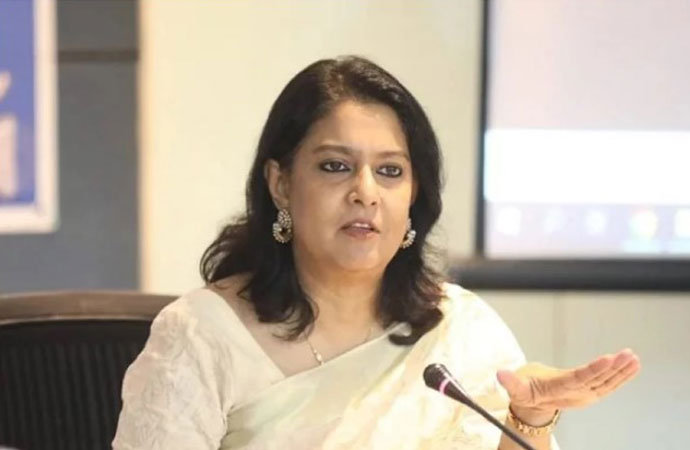
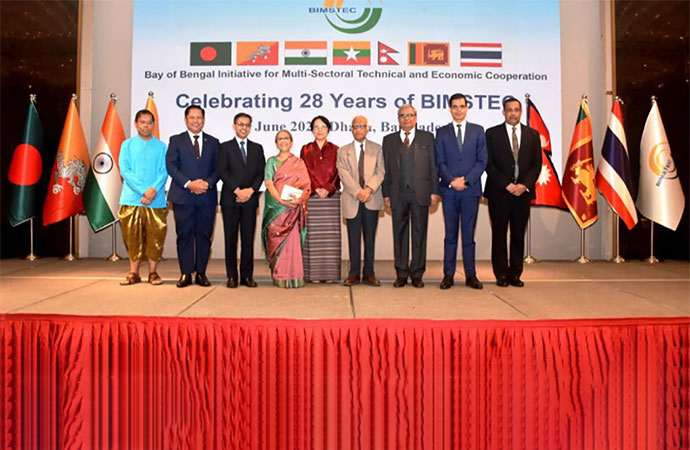








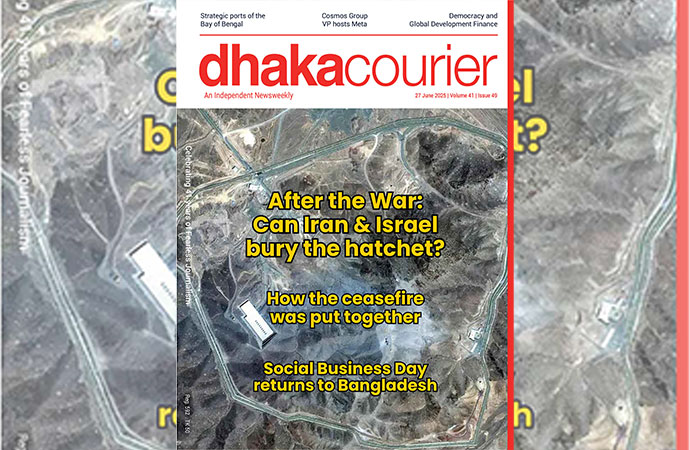
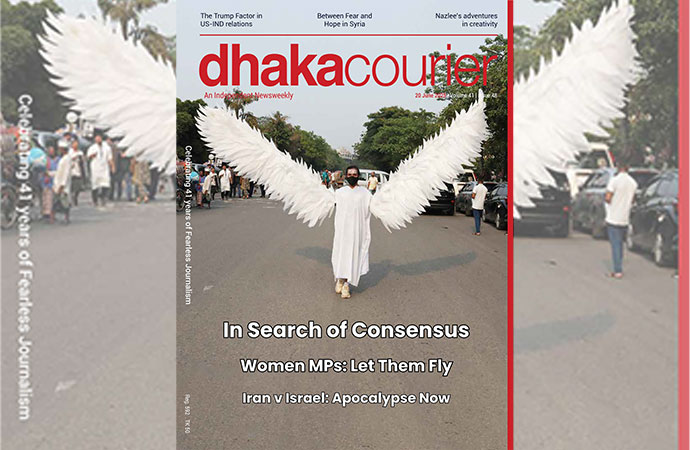
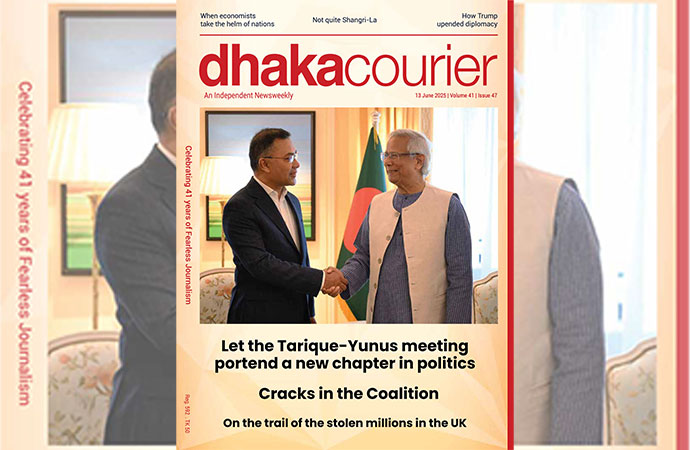
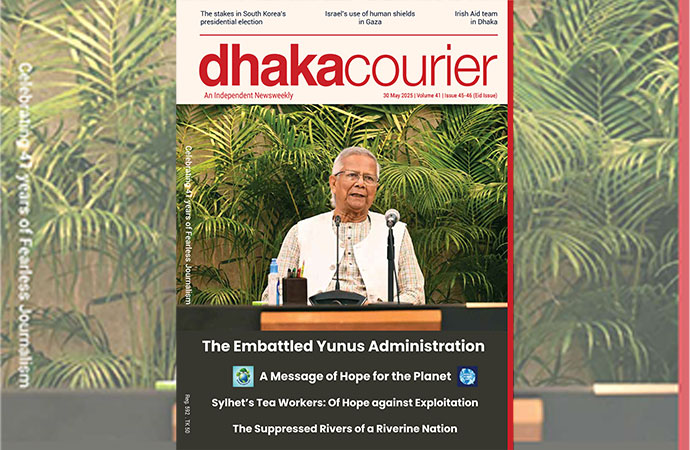


Leave a Comment
Recent Posts
Cosmos Group VP Nahar Khan hos ...
A visiting delegation from Meta, the parent company of Facebook, Insta ...
Break the gloom, build a bette ...
Emphasising the transformative power of social business and its strong ...
‘Mobocracy’ must not prevail
The US Supreme Court allowed the Trump administratio ..
Germany dependable partner in our development journe ..
15th edition of Social Business Day: Prof Yunus to j ..